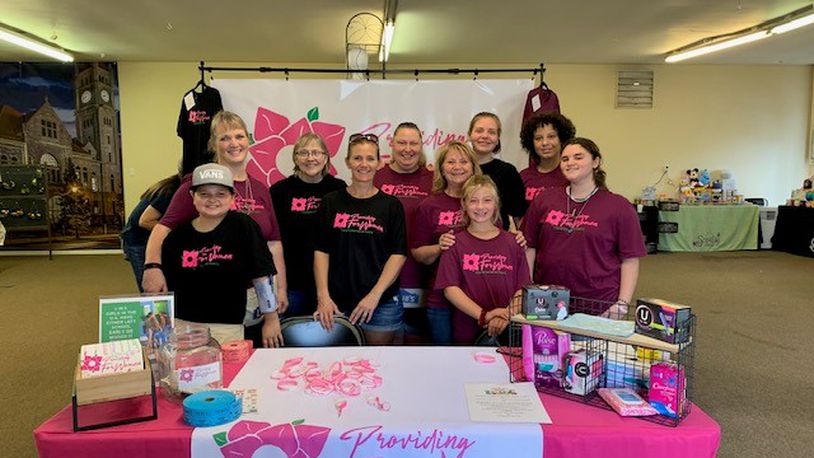Jordan got the idea of Providing for Women after her daughter shared a documentary with her about how women experiencing homelessness address their menstrual cycle. In response, Jordan enlisted friends, family and the women’s ministry of A House of Prayer Church in Xenia, to collect period products in December of 2017. The assembled pads and tampons were able to help 100 women that year.
“Every year, the church does a Christmas event to distribute food. We were the last table in line,” Jordan said. “I had a couple women cry and hug me because…people don’t know. We don’t talk about it.”
To date, Providing for Women has delivered 500,000 menstrual products to women and girls around all of Greene County, a number that will only continue to grow, Jordan says. Last week, the organization purchased 93,312 period products, enough to provide a month’s supply for 2,592 women.
Providing for Women distributes period products to organizations that serve low-income and homeless women, including Xenia and Fairborn Fish Pantries and area homeless shelters. Jordan estimates that 1 in 4 women in Greene County experience period poverty, based on poverty census data in the region.
“If you can’t buy food, you probably can’t afford to buy pads and tampons or other goods,” she said.
Gail Matson, director of Xenia Fish Food pantry, said her organization goes through 40-50 cases of menstrual products in a month, supplying them to women of all ages. Period products are among other essential hygiene items that rarely get donated and the agency “never has enough to offer everybody.”
“People, when they think of a food pantry, they don’t think of the needs that everybody has,” Matson said. “Food, yes, but other things are lost in the shuffle: toilet paper, toothbrushes, things that food stamps won’t buy.”
Period products are no longer subject to sales tax in Ohio. However, they still cannot be purchased with SNAP benefits, or food stamps, along with many other essential hygiene products.
“Things like soap, deodorant are always in demand, but can’t be bought with SNAP,” Jordan said.
In a national survey, 1 in 5 menstruating teens struggled to afford period products and 4 in 5 either stayed home from school or knew someone who had missed classes because they didn’t have access to period products.
Providing for Women delivers products to Xenia and Fairborn High Schools. The packages are given to school nurses.
“Students can go to the clinic to get anything they need,” Jordan said. “We do give surplus packages to clinics so when the nurse sees someone come back on a regular basis, they say, ‘hey do you need some to take home?’”
About the Author
